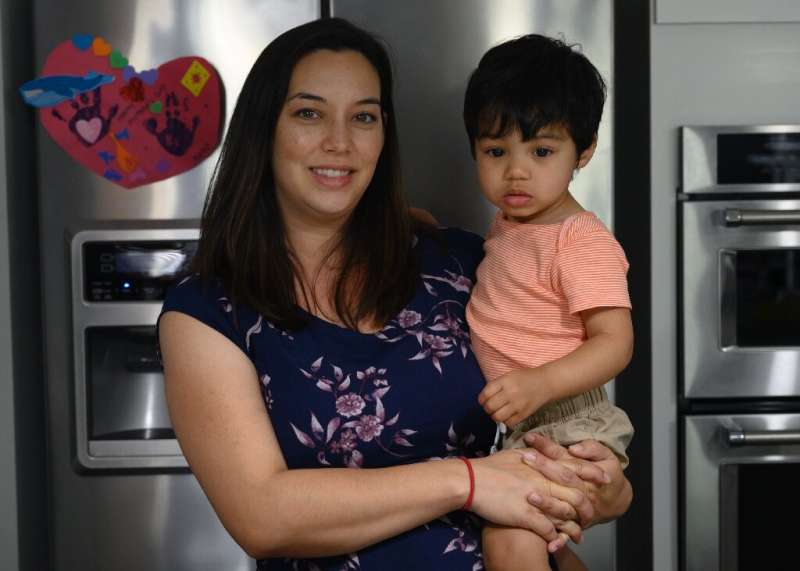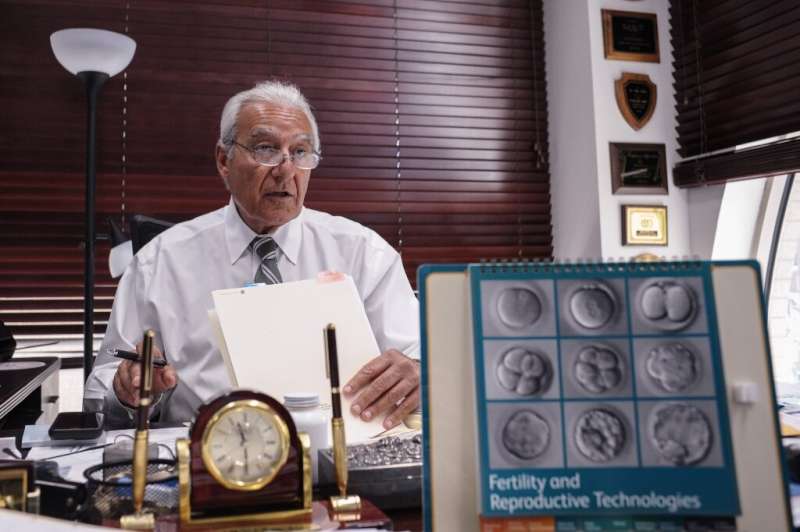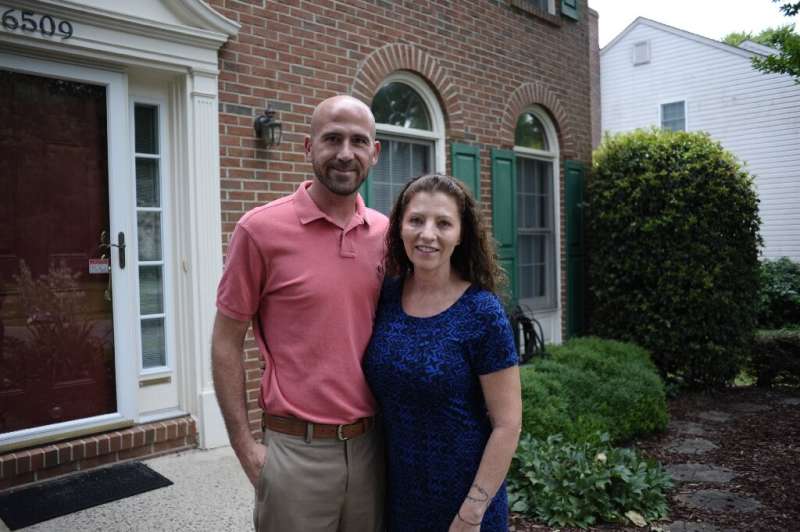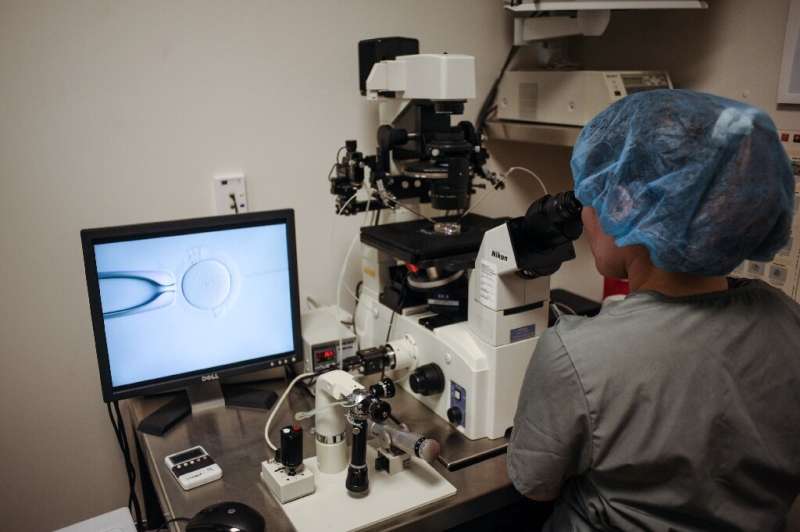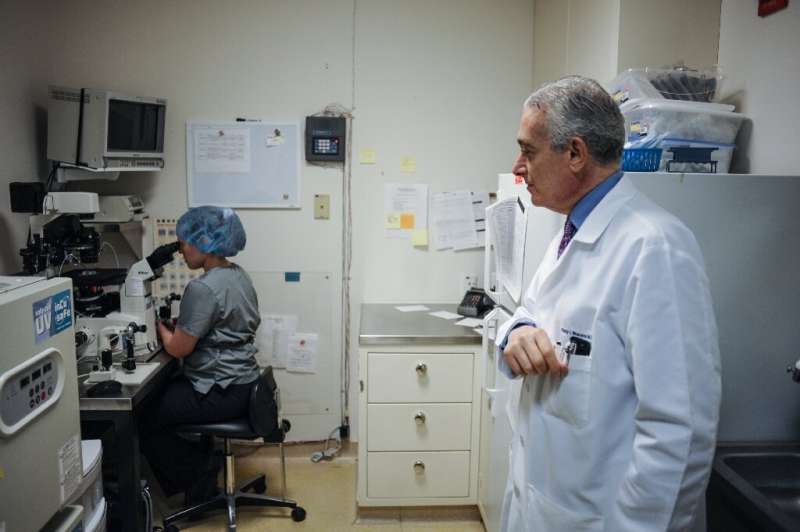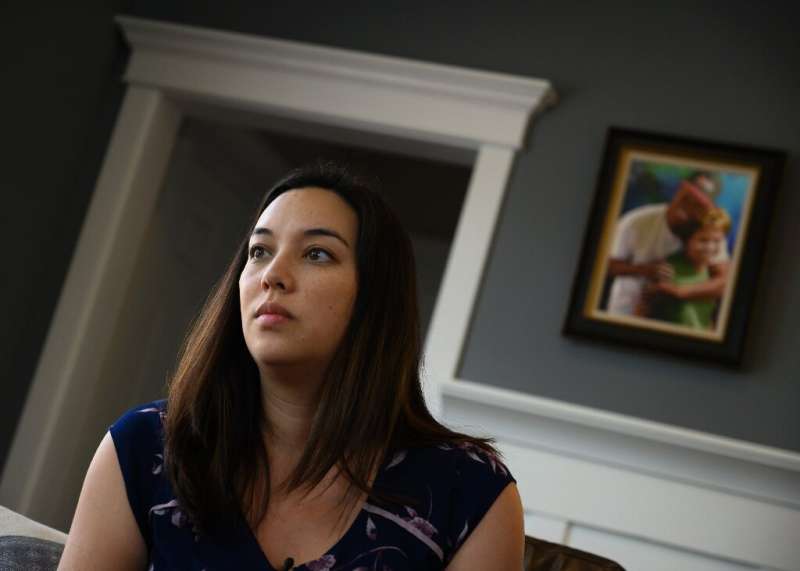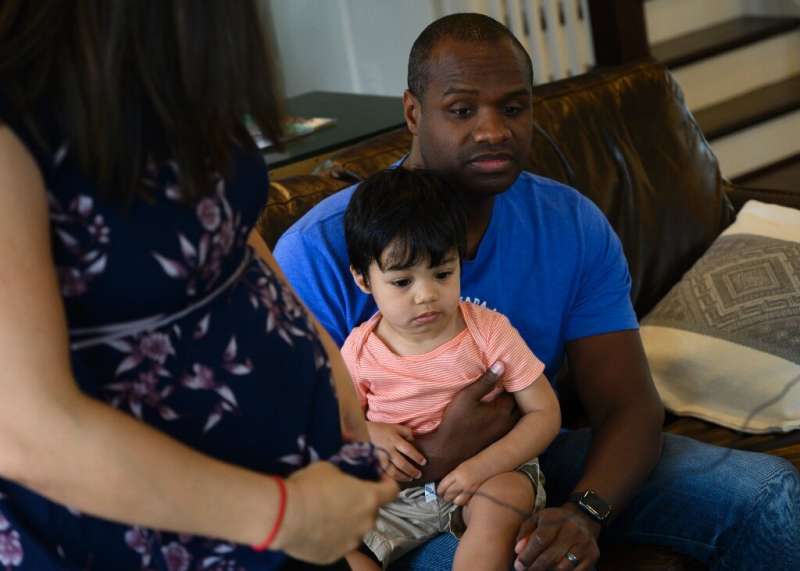Cindy Luna holds her son Mateo, born via in-vitro fertilization in 2017, at the family's Virginia home
Freezing your eggs, getting pregnant after the age of 50, choosing the baby's sex: when it comes to in-vitro fertilization and other assisted reproduction procedures in the United States, would-be parents are spoilt for choice.
This isn't the case in many other countries, including France, which is hoping to pass legislation that would let single women and lesbian couples benefit from these technologies for the first time.
Meanwhile across the Atlantic, Doctor Safa Rifka is plying his trade at a private clinic he has run in Washington since the 1980s.
"I think that every human being has the right to reproduce," he says, sitting in an office adorned with cards from some of the thousands of patients who have come through.
Gay or straight, married or single, or surrogate mothers: the doctor helps everyone bring babies into the world.
He is free to use any technique made possible by science—for example freezing eggs for later use, which remains restricted in France to cases of medical necessity.
The quality of eggs declines in women at around 35 and the procedure is popular in the US among women over 30 who are single or not ready for children, with numbers surging in the past decade.
"I was about 38, and I said, well, when I hit 40, if I'm not married, then I'll just have them fertilized, and I'll become a mother," recalled Maria Lacombe, one of Rifka's success stories.
Safa Rifka, head of the Columbia Fertility Associates in Washington, has been working in the fertility field since the 1980s
The Honduran, who works at the World Bank in Washington, met her French husband shortly after freezing her eggs.
After they failed to conceive naturally, the couple decided to thaw Lacombe's frozen eggs to create embryos via IVF.
Their first boy was born in 2016, and their second in November.
Lacombe, 44, wants to repeat the procedure with her final frozen egg next year.
"It's your body, they're your eggs," she said.
Terrie Callahan (R) met her fiance Rob late in her life, and she bought eggs from a young donor - but the IVF procedure worked well and produced 11 embryos that were frozen
Mother at 54
In more restrictive countries, Terrie Callahan probably wouldn't have become a mother.
She was 53 when she consulted doctor Fady Sharara, the head of a small clinic in northern Virginia.
Callahan had met her fiance Rob late in life and had to buy eggs from a younger donor. IVF worked well, producing 11 embryos that were frozen.
As is becoming increasingly common, the embryos were genetically tested to look for abnormalities in the number of chromosomes that would either make the fetus non-viable, or cause conditions like Down syndrome.
An in-vitro fertilization procedure takes place at the Virginia Center for Reproductive Medicine Clinic in Reston, Virginia
The test, known as PGT-A, allows you to determine the sex of embryos—and the couple chose a male.
"I was ecstatic, because I really did want a little boy," Callahan, a federal employee, told AFP.
"I love sports. So I hope he'll love sports too and actually want to play them," she added.
"We also wanted someone to carry on the family name for my soon-to-be husband, because he's got two sisters."
Ryker was born in August 2018, one month premature. Next year the couple want another child, using a surrogate mother.
In the United States "everything moves faster than even ethics," says Dr. Fady Sharara, here at his clinic in Reston, Virginia
Boy or girl, ma'am?
"Here in the US, everything moves faster than even ethics," said Sharara.
"Because the patients are paying for this and not the government, we have leeway."
The doctor recalled Nigerian and Indian couples who were despairing because they had only girls, and came to see him because they wanted a boy—a service euphemistically called "family balancing."
Some couples who can conceive without IVF still opt for the procedure, just so they can try to pick the baby's sex.
Last year Cindy Luna, 35, was implanted with a female embryo—the ideal order for siblings, she says
But choosing is only possible if a mix of embryos are produced, and Sharara is quick to remind people there are no guarantees.
"I would much rather have them do this, than have them go and abort a normal life just because she is the wrong gender," he said.
Cindy Luna, 35, and her husband Roby, who chose IVF for fertility reasons, didn't initially know that genetic testing would allow them this option.
It turned out they had one female and two male embryos, and the highest quality one of the three corresponded to their preference. Mateo, a boy, was born in 2017.
In a few weeks, the chubby-cheeked little guy with brown hair will be a big brother.
Cindy Luna - here with her husband Roby (R) - chose IVF for fertility reasons and did not initially know that genetic testing would allow them the option of choosing a female embryo
Last year, Luna was implanted with a female embryo—the ideal order for siblings, she said.
"Big brothers protect their little sisters and things like that," she said with a smile.
© 2019 AFP
